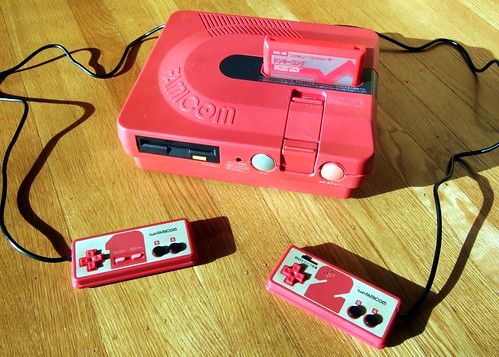Staying Ahead Of The Game - A Guide To Importing Your Video Games

Unfortunately however, many of these games never make it to European and American shores. This doesn't mean us Western gamers can't play them at-all though. There's a massive import and export market in games that has been around since the days of the original Nintendo Entertainment System and continues to thrive today thanks to our continuing fascination with all things Japanese.
Console Wars
Two of the major players in the 'console wars', Nintendo and Sony are Japanese companies who will always release their consoles in their 'home' territory first. This can be months or (in some cases) even years before they make their way into Europe and American territories and for those who like to be ahead of the pack with all the new hardware, this can be incredibly frustrating. Thankfully most modern consoles are built with universal compatibility so that games and accessories purchased in Europe should (in theory) work with a console purchased in Japan.Big in Japan
As well as the more visible JRPG and Action Adventure games, there are certain 'niche' games that will never be released outside of Japan simply because they wouldn't appeal to a wider Western audience. These include dating sims, rhythms action games and 2D fighters, genres that traditionally just don't do much business outside of Japan. What many gamers don't realise is that publishing and distribution is an expensive business so if a game is not likely to sell outside of its home market then any publisher looking to bring it across the pond could be looking at a massive potential gamble. However thanks to the online market, fans of these niche genres don't have to miss out. They might have to pay a little extra (importers will generally only sell a game on if it turns a profit for them and this will include the extra shipping costs they'll have had to pay) but there are hundreds of options available so looking for a bargain shouldn't prove too difficult. Ebay is perhaps the most thriving online market for imported games but there are also stores that specialise in imported Japanese hardware and software such as the UK based site 'Genki' and the American site 'Play Asia'. Even games that eventually DO find a Western distributor will occasionally go through extensive localisation, meaning the game that comes out the other side might be almost unrecognisable. To play the game in its original, intended state, importing is often the only way.Retro Fever
 |
| Neo Geo - CD Console Set |
Of course the import trade is not restricted to just games consoles. When it comes to everything from smartphones and tablets to televisions and cameras, the Japanese are years ahead of us in the technological stakes and there will always be those of us in the Western world who will want to feel like they're ahead of the curve.

Author Bio: Steven Capocci is a freelance copywriter and enthusiastic gamer/gadget hound from the UK. His dedication to his hobby (obsession?) means that every time a new console is released across the pond he uses Freight International Services to make sure he's always playing on launch day.




